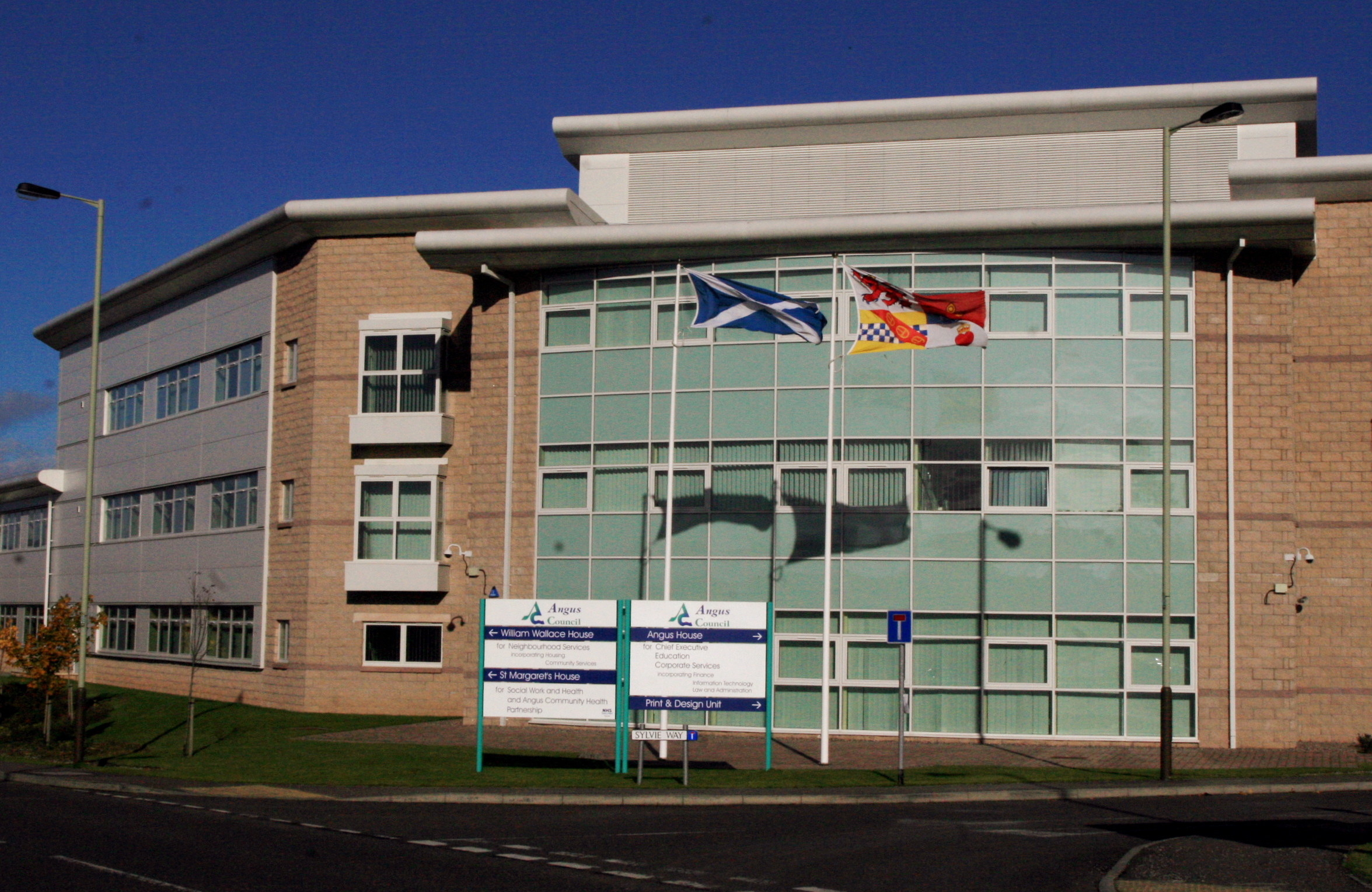The newly elected members of Angus Council have been urged not to back plans to slash the workforce by up to 800 full-time posts on Thursday.
The local authority will debate its new workforce strategy at a meeting of the full council in Forfar at 2pm.
Announcing the strategy, council leader Bob Myles said the challenges of a declining budget and need for rapid change means the council will be a “significantly different organisation” by 2022.
But the GMB union has slammed the “shambles” of recent adult care changes – with more council jobs lined up to go in that sector – and pleaded with the new administration to “do things differently” to the previous SNP group at the tiller.
It has written to every newly elected councillor to urge them to reject the current proposals to shrink the council by around a fifth between 2018 and 2021.
Regional organiser Helen Meldrum said: “Taking the shambles that is the run-down of home care services in Angus, with many vulnerable people not able to obtain private sector services due to living in remote areas of Angus, and the public under the impression that they have no choice but to stop receiving council care, this has demonstrated that the council cannot continue to cut services without this having a detrimental impact on those they are elected to serve.
“Angus Council have already made significant cuts and cutting by one fifth will make it unrecognisable in future.
“I would hope that they would not want to have that as their legacy.
“We urge each and every one of them to say enough is enough and to stand up to the Scottish Government and give confidence to the people of Angus that they will do what is right on behalf of them, by voting against these proposals on Thursday, and I will work with any councillor willing to protect jobs and services, and who opposes privatisation.
“The long-running SNP council were rejected at the last election partly, I believe, as a result of their mishandling and running down of social care in Angus.”
The workforce strategy states fewer administrative and clerical posts will be needed “as we move to increased automation, digitisation of processes and self-service.”
The adult care workforce will be further reduced.
Some 5042 people are employed by the council, or 4,113 full-time equivalent – which has reduced by 500 FTE over the past six years.
